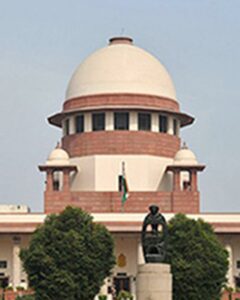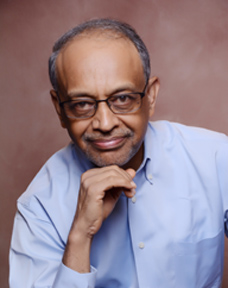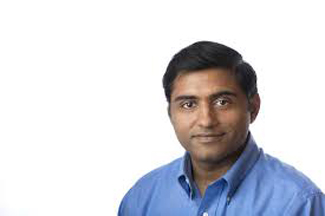
“As India celebrates its 75th Independence Day, there is little doubt that individual liberties guaranteed under the constitution are fast vanishing while the judiciary that is supposed to protect personal freedom and the rule of law is finding common ground with the Executive branch that is increasingly set on a path towards majoritarian authoritarianism. It has been said that “democracy dies in darkness,” and the provisions in India’s constitution, like the one in the U.S., are like “parchment barriers – fragile bulwarks intended to preserve liberty. To be effective, these barriers need to be respected by government and ordinary citizens alike both in law and custom.”

Recent sparring between Mallikarjun Kharge, the opposition leader in Rajya Sabha, and Piyush Goyal, BJP leader of the House, on the Enforcement Directorate’s summons to Congress leaders reveals the polarized perspectives on these issues from the opposite ends of the spectrum. Mr. Kharge was aghast over the summons he received when the parliament was in session. He accused the BJP government of deliberately scheduling his appearance when Rajya Sabha was in session to demoralize, destroy and intimidate the opposition. Responding to the charge, Piyush Goyal said, “our government does not in any manner interfere in the functioning of law-enforcement agencies and allows them to do their work.” To a keen observer of the current political dynamics in India, nothing could be farther from the truth. In a significant verdict delivered on Wednesday, 27 July 2022, the Supreme Court declared that the Enforcement Directorate (ED) has the powers conferred under the law to investigate people, conduct searches and raids, and even arrest citizens under the stringent provisions of the Prevention of the Money laundering Act (PMLA). The verdict was in response to petitions challenging the powers of the ED under PMLA. The PMLA was enacted in 2002 to curb money laundering, a crime of global concern. However, many legal experts contended that the law violates citizens’ right to privacy and right against self-incrimination under Article 20 and Article 21. There were also serious concerns about the unbridled power given to ED and the attempts to convert any offense to money laundering. IF ED truly paid attention to its mandate, it would not have caught off guard about the 2016 Panama or 2021 Pandora papers leading to the detection of Rs. 20,353 crores of unaccounted money from 930 ‘India linked entities.’ However, of late, ED appears to be more focused on pursuing the opposition politicians in search of a crime. The Congress party recently cited over 3000 raids under eight years of the Modi government compared to 112 during the UPA decade. It said that a poor conviction rate of just 0.5 percent showed the alleged “weaponization” of the agency by the ruling BJP. Abhishek Manu Singhvi, a Congress spokesperson, and a Supreme Court advocate, cited that many cases have been filed against opposition leaders. Still, almost no new cases have been filed against those who are members of the ruling party or bear proximity to the same. “Where cases were initiated against opposition members, they have gone into cold storage or been abandoned once the accused have switched loyalties towards the ruling party. This is also the case with cases pending against BJP leaders,” said Singhvi. He also urged the top court to provide safeguards in the application of PMLA.
ED questioned Sonia Gandhi and Rahul Gandhi for nearly 60 hours about their association with Associated Journals Limited and details of shares in their names belonging to AJL and the National Herald. Congress has characterized the case as a political vendetta against the Gandhi family. West Bengal Chief Minister Mamata Banerjee, former Punjab Chief Minister Charanjit Singh Channi, Rajasthan Chief Minister Ashok Gehlot, the Abdullahs of Kashmir, left leaders of Kerala, the Thackerays of Maharashtra, the Samajwadis of UP, Arvind Kejriwal of AAP, Hemant Soren of Jharkhand have all complained because of ED investigations against them or their relatives or close political associates. Opposition parties are also concerned with the timings of raids by the ED, and they feel that it picks up pace before crucial polls.
The case of Sanjay Raut, the Shiv Sena leader, may illustrate the apprehension that has been cast on many independent minds who have a hard time agreeing with Mr. Goyal. Mr. Raut has been a controversial yet effective spokesman for the party. He encountered no inquiry until he engineered the split with BJP and helped Udhav Thackeray create a coalition government with NCP and Congress. His vocal optimism for the coalition and criticism leveled against Prime Minister Modi and BJP might have made him a prime target. As of this writing, he is under detention by ED in connection with a building development scandal.
In Kerala, Chief Minister Pinarayi Vijayan is wilting under mushrooming scandals that involve gold smuggling, money laundering, and protocol violations involving a foreign government. Yet, the Central Agencies dealing with those serious charges seem to be in no hurry to investigate and seek the truth. Political pundits speculated that the Modi government’s reluctance to move forward on these inquiries might have a lot to do with the fact that a potential downfall of Pinarayi Vijayan might somehow strengthen the opposition in Kerala in a coalition headed by the Congress. Moreover, it might not fit their narrative or not be consistent with the stated philosophy of “Congress Mukta Bharat.” Whether it is the VYPAM scandal in Madhya Pradesh under Chief Minister Shivaraj Singh Chouhan or the illegal mining scam in Karnataka under the former Chief Minister Yeddyurappa, investigations also have a way of disappearing into oblivion.
Only last December, Chief Justice of India Ramana criticized the ‘indiscriminate’ use of the PMLA to arrest individuals. He implored that PMLA must be used reasonably and that the Act is being used as a “weapon” even in cases where the facts don’t require its use. However, the recently rendered verdict on PMLA by a bench of Justices AM Khanwilkar, Dinesh Maheshwari, and CT Ravikumar may have given the green light to the Central Agency to overstep the boundaries of personal freedom and privacy rights in pursuit of their crusade against allegations of corruption and money laundering, that the opposition parties would term it as political witch hunts targeting only government’s adversaries. Those who have chosen public service as a vocation must remain free of graft and corruption. It is incredible to watch the rags to riches story of many of these politicians and bureaucrats flaunting their ill-gotten wealth, mainly stolen from the public. Therefore, there is a sound rationale for establishing an effective law enforcement mechanism to counter this growing threat to the nation’s economic wellbeing. However, what we are mainly witnessing across the country today, is a double standard of unequal application of laws.
As India celebrates its 75th Independence Day, there is little doubt that individual liberties guaranteed under the constitution are fast vanishing while the judiciary that is supposed to protect personal freedom and the rule of law is finding common ground with the Executive branch that is increasingly set on a path towards majoritarian authoritarianism. It has been said that “democracy dies in darkness,” and the provisions in India’s constitution, like the one in the U.S., are like “parchment barriers – fragile bulwarks intended to preserve liberty. To be effective, these barriers need to be respected by government and ordinary citizens alike both in law and custom.”
Wishing the nation, a happy 75th Independence Day.





Be the first to comment